Ecosystems, food chains and food webs -> parasites
Parasites: An Introduction
Parasites are organisms that live on or within another organism (the host) and benefit at the host's expense. They come in various forms, including protozoa, helminths, and ectoparasites. Understanding the characteristics, life cycles, and impact of parasites is crucial in the field of biology and public health.
Types of Parasites
There are three main types of parasites:
- Protozoa: These single-celled organisms can cause diseases such as malaria, amoebiasis, and giardiasis.
- Helminths: These are parasitic worms that can infect the gastrointestinal tract, blood, and other tissues. Examples include tapeworms, roundworms, and flukes.
- Ectoparasites: These parasites live on the surface of the host's body, such as lice, fleas, and ticks.
Life Cycle of Parasites
Parasites often have complex life cycles involving different stages and hosts. For example, the life cycle of the malaria parasite includes both human and mosquito hosts. Understanding these life cycles is essential for controlling and preventing parasitic infections.
Effects of Parasites
Parasites can cause a range of health problems in their hosts, including nutrient deficiencies, organ damage, and the transmission of infectious diseases. They can also impact the ecosystems in which they exist, influencing the behavior and population dynamics of their hosts.
Study Guide
Here are some key points to focus on when studying parasites:
- Identify and differentiate between the three main types of parasites (protozoa, helminths, and ectoparasites).
- Understand the life cycles of common parasites and the roles of various hosts in these cycles.
- Explore the impact of parasites on human health and the environment.
- Examine methods for controlling and preventing parasitic infections.
By mastering these concepts, you can gain a comprehensive understanding of the fascinating yet intricate world of parasites.
[Parasites] Related Worksheets and Study Guides:
.◂Science Worksheets and Study Guides Seventh Grade. Ecosystems, food chains and food webs

 Activity Lesson
Activity Lesson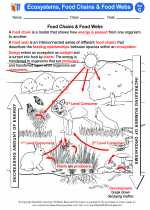
 Worksheet/Answer key
Worksheet/Answer key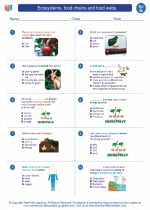
 Worksheet/Answer key
Worksheet/Answer key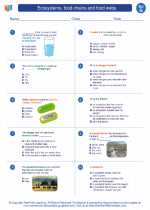
 Worksheet/Answer key
Worksheet/Answer key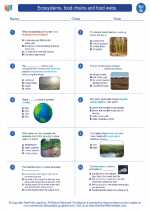
 Vocabulary/Answer key
Vocabulary/Answer key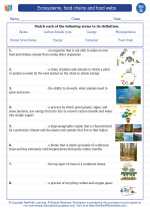
 Vocabulary/Answer key
Vocabulary/Answer key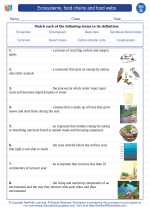
 Vocabulary/Answer key
Vocabulary/Answer key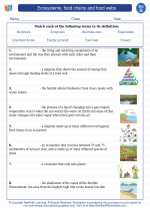
 Vocabulary/Answer key
Vocabulary/Answer key
 Vocabulary/Answer key
Vocabulary/Answer key
